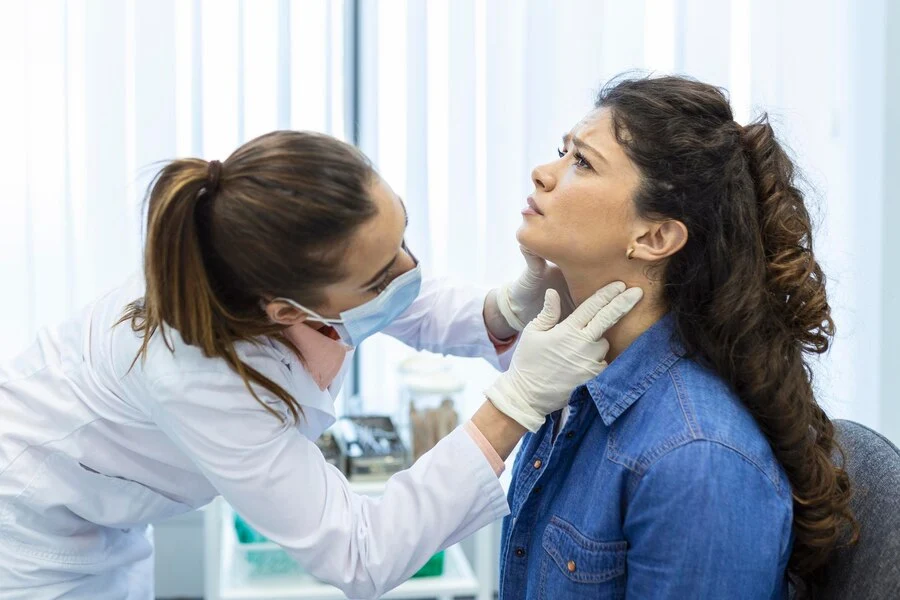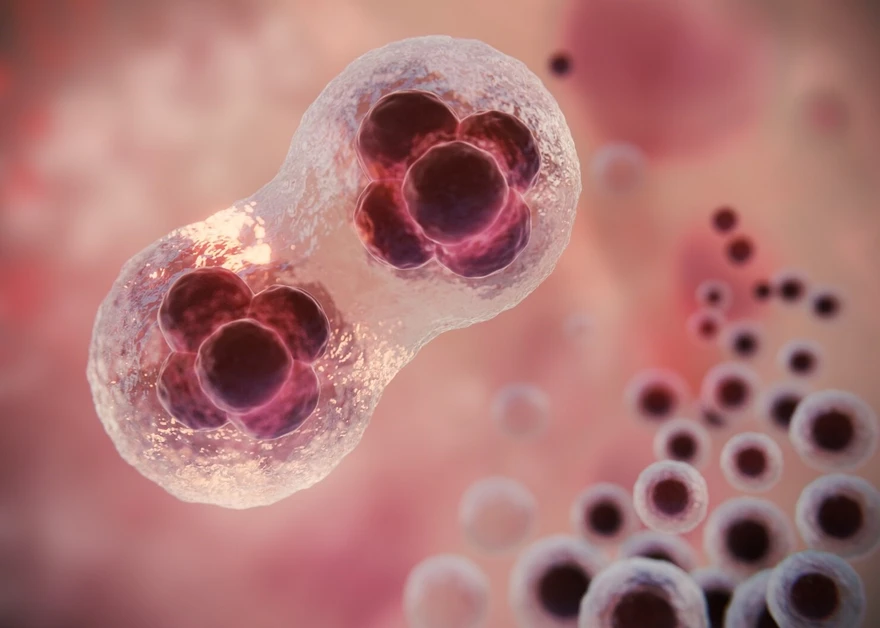Preventive Healthcare
Tri lodothyronine T3 Testing: Your Essential Guide to Thyroid Wellness, Preparation, Results and Next steps
7758 Views
0

What is a T3 (triiodothyronine), And What Does It Do?
Triiodothyronine or T3, is a primary hormone which your thyroid gland releases in your bloodstream. Your thyroid also releases thyroxine, also called T4, and tetraiodothyronine. Both T3 and T4 work together and are termed as thyroid hormone.
Almost 80% of your body’s T3 hormone is present due to the conversion of T4 into T3 outside the thyroid gland. The rest of the T3 is produced by your thyroid gland.
Hormones coordinate the message from the blood to your organs, tissues and muscles. Such signals instruct the body what to do and when to do it.
If you consider triiodothyronine vs. thyroxine, i.e. T3 vs. T4, T4 is an inactive hormone which usually converts into T3. Your kidney and liver are involved in such a conversion process.
Both T4 and T3 hormones together regulate your body’s:
- Metabolic rate
- Muscle control
- Heart and digestive functions
- Brain development
- Bone maintenance
Who Performs a T3 (Triiodothyronine) Test?
Usually, a phlebotomist performs a T3 test by taking a blood sample from your body. However, any healthcare provider who is trained in drawing blood can do this task. Those samples are then sent to the lab, where a medical laboratory scientist tests the sample through machines called analyzers.
What Should I Expect During my Triiodothyronine T3 Blood Test?
Triiodothyronine T3 involves taking a blood sample from your body. You can expect the below-mentioned aspects during this process:
- You are asked to sit in a chair so your healthcare provider can access a vein in your arm. Blood samples will be taken from the inner side of the arm on the other elbow side.
- After disinfecting the area around your vein, the healthcare provider will draw blood. You may feel a small pinch.
- Once enough blood is collected, they will remove the needle and put a small cotton ball on the site.
This entire process will take around 5 minutes. You don’t have to do any special preparation for the T3 blood test. Your doctor will let you know if you have to stop taking any particular medication during the test. There are medications which can interfere with the T3 level.
Usually, the T3 test is recommended for people who are at higher risk of developing thyroid disease. These patients include:
- Type 1 diabetes
- Pernicious anemia
- History of thyroid disease
- Primary adrenal insufficiency.
Also, older adults or women who have recently given birth to a baby are at higher risk of developing thyroid disease.
What Should I Expect After My T3 (Triiodothyronine) Test?
Once your healthcare provider has taken the blood sample, they will send it to the laboratory. They will share the result with you after getting it from the lab.
What Are The Risks of a T3 (Triiodothyronine) Blood Test?
A blood test is a common process to know the exact reason for your problem and perform a line of treatment. There is very little risk involved in the T3 blood test. You may get some bruising or tenderness at the site of blood drawn, but it will go away quickly.
When Should I Know The Results of My T3 (Triiodothyronine) Test?
Usually, you will know about your T3 test in one or two days, but it may take longer.
What Type of Results Do You Get For A T3 (Triiodothyronine) Test?
Your T3 blood test report will provide the below-mentioned information:
- Blood test name along with the aspect which is measured in the test.
- Measurement or number of your blood test results.
- Measurement range for that test.
- Information showing whether the result is high or low.
What are Normal T3 Levels?
Normal T3 levels range from lab to lab, but you must check the T3 level range given in your report. In case of any doubt, ask your healthcare provider.
Normal T3 Levels
Depending on your age, your T3 level will vary. In general, the normal T3 levels range for healthy people includes:
- Children between 1 and 5 years old: 106 – 203 nanograms per deciliter (ng/dL)
- Children between 6 and 10 years old: 104 – 183 ng/dL
- Children between 11 and 14 years old: 68 – 186 ng/dL
- Adolescents between 15 and 17 years old: 71 – 175 ng/dL
- Adults between 18 and 99 years old: 79 – 165 ng/dL
Normal Free T3 Levels
Usually, free T3 levels are not preferred because of lack of accuracy. In general, the range of free T3 thyroid in healthy people includes:
- Infants up to 3 days old: 1.4 – 5.4 picograms per millilitre (pg/mL)
- Infants between 4 and 30 days old: 2.0 – 5.2 pg/mL
- Babies between 1 month and 1 year old: 1.5 – 6.4 pg/mL
- Children between 1 and 6 years old: 2.0 – 6.0 pg/mL
- Children between 7 and 11 years old: 2.7 – 5.2 pg/mL
- Children between 12 and 17 years old: 2.3 – 5.0 pg/mL
- Adults between 18 and 99 years old: 2.3 – 4.1 pg/mL
What Happens When T3 Levels Are High?
A high level of T3 thyroid indicates hyperthyroidism (overactive thyroid). There are multiple causes for hyperthyroidism, including thyroid nodules, Graves’ disease, and thyroiditis. Graves’ disease is common in females and runs in families. The growth of lumps or nodules in the thyroid leads to hyperthyroidism. This nodule is called a goitre.
Hyperthyroidism speeds up the metabolism process, which is not good for your health. Below are some symptoms of hyperthyroidism:
- Sudden weight loss
- Nervousness feeling
- Increase in bowel movement
- Irregular or fast heartbeat
You must contact your healthcare provider in case you feel any of these symptoms. If you are diagnosed with hyperthyroidism, then your doctor can let you know about its severity through a T3 test. Suitable treatment for hyperthyroidism includes:
- Beta-blockers block the activity of thyroid hormones.
- Anti-thyroid drugs slow down the thyroid activity of hormone production.
- Radioactive iodine damages the thyroid cells in a controlled manner.
- Surgery to remove either a part or the entire thyroid gland.
What Happens When T3 Levels Are Low?
If the triiodothyronine (T3) function is low, it indicates hypothyroidism (underactive thyroid). However, most doctors don’t rely on tests for hypothyroidism as it usually comes normal.
Also, some people may have severe hypothyroidism, with greater levels of TSH and low levels of T4 but normal T3 levels.
Low levels of T3 can be because of certain medications like steroids or severe disease. Such a condition can reduce the T4 level, which converts into T3. This results in a lower level of T3. You can also get underactive thyroid because of autoimmune disease, thyroid surgery or radiation treatment. Sometimes, consumption of too little or too much iodine can result in such symptoms.
Low T3 treatment includes levothyroxine medication. This medication replaces the hormones that the thyroid produces.
Should I Be Concerned If I Have A Low Or High T3 (triiodothyronine) Test Result?
Usually, T3 test results are accurate, but there are certain factors which may interfere with the results. These factors include the intake of certain supplements or medications and pregnancy. Your doctor will consider all such factors while measuring your T3 test results.
Changes in thyroid levels are common during pregnancy. Hence, most pregnant women don’t need any T3 testing. Your doctor may recommend T3-level testing during pregnancy in the following cases:
- Thyroid disease symptoms
- History of thyroid diseases
- Autoimmune disease
- Family history of thyroid disease
Conclusion
Both T4 and T3 triiodothyronine target organs, muscles and tissues to communicate with them. In hyperthyroidism, thyroid glands become overactive, which increases the production of thyroid hormones. You must take proper medications and follow a diet plan recommended by the doctor in such a condition.
Hypothyroidism indicates a low T3 level, which implies underactive production of thyroid hormones.
Metropolis is a leading diagnostic centre with its branches in almost all the major cities. If you are looking for accurate T3 test results, then search for the nearest Metropolis centre in your city. This diagnostic centre has around 3,487 clinical laboratory tests in India and has adopted various advanced technologies for giving accuracy in results.
So, if you are experiencing symptoms of thyroid disease or if your doctor has recommended the test, Book T3 Test, get it done with Metropolis for an online report in a short period.













1701259759.webp)









 WhatsApp
WhatsApp